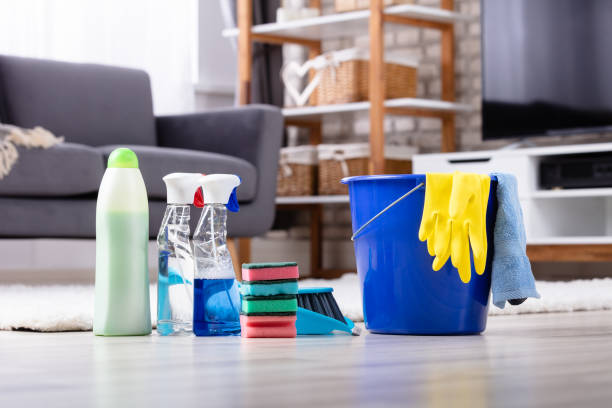The air inside our homes is typically five-times more polluted than the air outside.

In response to the rapid spread of Covid-19, staying at home can reduce the risk posed by the disease, which is responsible for a growing number of deaths around the world.
But when you are indoors all day, you are actually spending a lot of time in a rather polluted environment. Here are some tips to optimise the quality of the air at home.
With several countries across the world under lockdown to stem the spread of Covid-19, many people have been forced to stay in and content themselves with brief forays outside for a little solitary exercise or some essential shopping.
Working from home and spending most of the day indoors entails spending a lot of hours in an environment where one important consideration is often overlooked: indoor air pollution.
According to official estimates from the French air quality observatory, the air in our homes is typically five times more polluted than the air outside.
Cleaning products, tobacco smoke, volatile organic compounds created by combustion during cooking, damp and mould … Our consumer lifestyles have a major impact on the air that we breathe at home, which is why we should take steps to renew it as often as possible.

Picture: iStock
Air your home several times a day
It is essential to change the air in your home several times a day – in the morning, after cooking or cleaning, and in the evening before going to bed. Leave windows open for several minutes at a time to ensure effective ventilation.
If the mechanical ventilation system in your home has not been cleaned for a long time, now is the time to set it right.
“All too often neglected, efficient ventilation is vitally important in a healthy home. It brings in fresh air, removes odours and pollutants, eliminates excess humidity and supplies combustion appliances with the oxygen they need,” points out the French Environmental and Energy Conservation Agency (Ademe).
Do not smoke
Tobacco smoke leaves lasting traces on walls, fabrics, floors and ceilings. Inhaling the air in an enclosed space polluted by tobacco increases the risk of heart disease and respiratory disorders.

Picture: iStock
Do not overuse industrial cleaning products and consider natural alternatives
Those of you who are planning on taking advantage of confinement measures to do some thorough spring-cleaning should be wary of overusing industrial cleaning products.
In April 2019, a study conducted by the French magazine 60 Millions de consommateurs (60 Million Consumers) highlighted the presence of toxic and polluting substances in 60 top-selling brands. Needless to say, the best policy is to keep recourse to such products to a minimum.
Widely available in supermarkets, potassium soaps, traditional hard soaps, sodium bicarbonate and white vinegar are precious natural allies in the bid to keep your home bright as a new pin.
These four traditional products are all that you need to clean all types of surfaces, including pots and pans (sodium bicarbonate or potassium soap), fabrics (household detergent made from hard soap), and glass and glazed surfaces (white vinegar).
For more news your way, download The Citizen’s app for iOS and Android.
Support Local Journalism
Add The Citizen as a Preferred Source on Google and follow us on Google News to see more of our trusted reporting in Google News and Top Stories.






